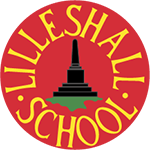
Lilleshall Primary School
Making Our Learning Fly
Lilleshall Primary School
Lilleshall Primary School Limekiln Lane Lilleshall Newport Shropshire TF10 9EY
Telephone:
Email:
Religious Education
RE is important as:
- Young people today are growing up in a world where there is increasing awareness of the diversity of religious and non-religious worldviews. High quality education in religion and worldviews can prepare young people for a life in a modern cohesive society by helping them understand the world around them.
- Understanding the complexity of the different religious and non-religious worldviews around us all, as well as making sense of our own worldview, is the central aspect of a balanced and modern curriculum.
- We live in an increasingly globalised, interconnected world. A high-quality education in religion and worldviews is vital preparation for young people entering a diverse work environment and will help develop our future leaders and achievers.
- Knowledge and understanding from an education in religion and worldviews contributes to our school children's capacity to be:
- Thoughtful individuals
- Self-aware members of society
- Kind neighbours
- Generous citizens
- Reflective individuals
English legislation RE is for all pupils:
• Every pupil has a legal entitlement to RE.
• RE is a necessary part of a ‘broad and balanced curriculum’ and must be provided for all registered pupils in state-funded schools in England, unless withdrawn by their parents.
• The ‘basic’ school curriculum includes the National Curriculum and RE
RE is locally determined, not nationally.
• A locally agreed syllabus is a statutory syllabus for RE, recommended by a local standing advisory committee for RE (SACRE) for adoption by a local authority.
• Maintained schools without a religious character such as Lilleshall Primary School must follow the locally agreed syllabus
RE is multi faith and recognises the place of Christianity and the other principal religions in the UK. Non-religious worldviews are included.
The RE curriculum, drawn up by a SACRE ‘shall reflect the fact that the religious traditions in Great Britain are in the main Christian, while taking account of the teaching and practices of the other principal religions represented in Great Britain’.
Contemporary guidance from the Government makes clear that the breadth of RE will include the six principal religions of the UK and nonreligious worldviews.
Parental right of withdrawal from RE
This was first granted in 1944 when curricular RE was called ‘Religious Instruction’ and carried with it connotations of induction into the Christian faith. RE is very different now – open, broad, and exploring a range of religious and non-religious worldviews. Enabling children to have a greater understanding of their fellow citizens and their beliefs. In the UK, parents still have the right to withdraw their children from RE on the grounds that they wish to provide their own RE. This provision will be the parents’ responsibility. This right of withdrawal exists for all pupils in all types of school, including schools with and without a religious designation. Parents also have the right to withdraw their child from part of RE and can do so without giving any explanation.
Religious Education (RE) is taught in accordance with Telford and Wrekin's Agreed Syllabus, supported by the Jigsaw RE Scheme of Work.
Collective Worship - Assemblies are held daily, and are either whole school in the hall or in class. Stories are shared which promote a knowledge and understanding of the diversity of the world values of caring for our world and each other. Our assemblies give opportunities for children to reflect on a spiritual and personal level and also celebrate achievements both in and out of school. The vicar from the local Church of England church visits at least twice a term to deliver a whole school assembly.
Through a wide exploration of religious beliefs and practices we hope the children will gain a deepening insight into other religions as well as their own.
The following religions are studied:
- Foundation Stage – children have the opportunity to explore key questions about life and relate these to a range of different religions including Christianity, Hinduism and Sikhism.
- Key Stage One – children learn about the practices and rituals of different religions, including Christianity, Islam and Judaism through a thematic approach.
- Key Stage Two – world religions are studied in depth throughout the Key Stage including Islam, Sikhism, Hinduism, Buddhism and Humanism.
At Lilleshall Primary School we encourage all children to develop their Spiritual, Moral, Social and Cultural (SMSC) awareness through each curriculum area. SMSC is deeply embedded throughout the whole of the RE curriculum and the themes that are taught throughout the year. Every lesson from Early Years to upper primary offers opportunities for children’s spiritual, moral, social and cultural (SMSC) development, and this is clearly mapped and balanced across each year group.